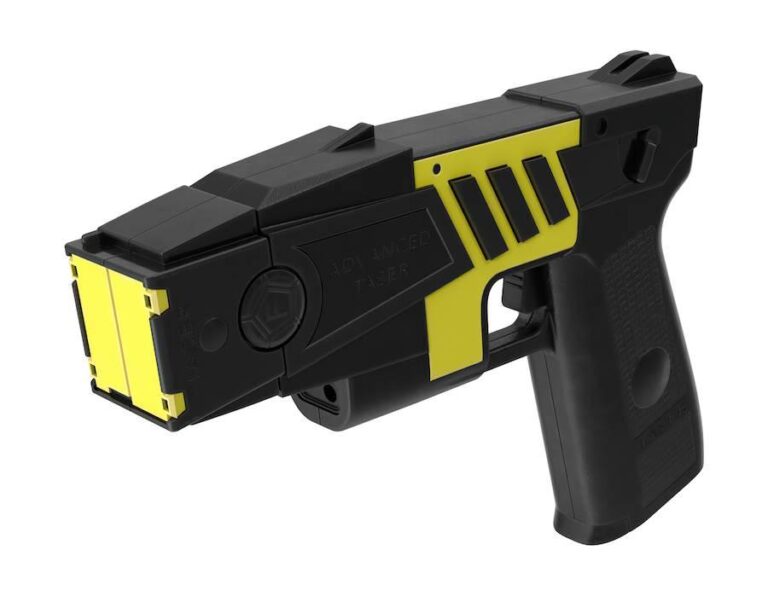Table of Contents
- Understanding the Legal Definition of Concealed Stun Guns and Permit Requirements
- Common Legal Consequences of Carrying a Concealed Stun Gun Without Authorization
- Navigating State and Local Regulations to Ensure Compliance
- Practical Steps to Secure Proper Permits and Avoid Legal Penalties
- Closing Remarks
Understanding the Legal Definition of Concealed Stun Guns and Permit Requirements
Navigating the legal landscape surrounding concealed stun guns requires a clear understanding of how they are defined under the law. Generally, a concealed stun gun refers to any electronic weapon designed to incapacitate a person through electric shock, carried in a manner hidden from public view. However, legal definitions can vary significantly from state to state, with some jurisdictions distinguishing between stun guns, tasers, and other electronic control devices based on factors such as voltage, size, or intended use. This differentiation often influences whether a permit is required to carry or possess such a device. Failure to recognize these distinctions can lead to inadvertent legal violations.
When it comes to permits, states may impose varying requirements including mandatory background checks, training courses, or age restrictions. Some jurisdictions mandate that individuals obtain a permit to carry a concealed stun gun, similar to requirements for firearms, while others allow unrestricted possession and carry. To legally carry a concealed stun gun, individuals typically must:
- Submit to a formal application process with law enforcement agencies
- Complete training that covers proper use and safety protocols
- Adhere strictly to local laws regarding where and how stun guns can be carried
Common Legal Consequences of Carrying a Concealed Stun Gun Without Authorization
Possessing a concealed stun gun without the proper legal authorization can lead to significant criminal charges, often varying by state or jurisdiction. These charges may range from misdemeanors to felonies, depending on the intent, prior record, and specific regional laws. Individuals caught carrying such devices without a permit often face fines, probation, or even jail time. In some areas, merely being found in possession of an unauthorized stun gun can result in confiscation and immediate arrest.
- Felony charges for repeat offenses or if the stun gun was used in the commission of a crime
- Criminal record implications that could affect employment, housing, and other rights
- Revocation of concealed carry permits if applicable
Beyond criminal repercussions, unauthorized possession also opens the door to civil liabilities, particularly if the stun gun causes injury. Victims may file lawsuits for damages, which can compound the legal and financial consequences. It’s imperative for anyone considering carrying a stun gun to understand the complex legal landscape and ensure they comply with all local and state regulations, thereby avoiding these harsh penalties.
Navigating State and Local Regulations to Ensure Compliance
Understanding the intricate web of regulations at the state and local levels is crucial for anyone considering the use of concealed stun guns. Unlike federal law, which sets a broad framework, individual states and municipalities can impose stricter requirements, including where and how these devices can be carried or if a permit is necessary at all. Failure to comply with these localized rules can lead to severe consequences, such as hefty fines, confiscation of the device, and even criminal charges that escalate legal risks considerably.
To stay on the safe side, it’s important to actively:
- Research specific statutes and ordinances for each jurisdiction you plan to carry your stun gun in
- Consult local law enforcement agencies or legal experts to confirm up-to-date permit requirements
- Maintain all required documentation and permits readily accessible when carrying
Practical Steps to Secure Proper Permits and Avoid Legal Penalties
To navigate the complex legal landscape surrounding concealed stun guns, start by thoroughly researching your local jurisdiction’s requirements. Many regions mandate specific permits or licenses before possession or carrying a stun gun. Visiting official government websites or consulting with legal professionals can provide clarity on application procedures and eligibility criteria. Keep in mind that obtaining these permits often involves background checks and completion of safety courses designed to ensure responsible ownership.
Once armed with the necessary information, prioritize the following actions to secure proper permits:
- Submit complete and accurate applications to avoid delays or rejections.
- Maintain records of all correspondence and receipts related to your permit process.
- Stay updated on renewal deadlines and legal amendments that could affect your permit’s validity.
- Always carry your permit when possessing a stun gun to demonstrate compliance if questioned by law enforcement.
Closing Remarks
In conclusion, while concealed stun guns can offer a sense of personal security, it’s crucial to understand the legal implications of carrying one without the proper permit. Ignorance of the law is not a defense, and the consequences-from hefty fines to potential criminal charges-can be severe. Always take the time to research the regulations specific to your state or locality, and obtain the necessary permits before carrying a stun gun. Staying informed and compliant not only protects your safety but also ensures you avoid unnecessary legal trouble. Remember, responsible ownership is the key to effectively balancing personal protection with the rule of law.Check Our Other Blogs
- StunGun – Your Trusted Source for Stun Guns, Laws, and Self-Defense Tips
- PepperSprayLaws – Your Trusted Resource for Pepper Spray Information
- StunGunLaws – Your Trusted Guide to Stun Gun Legality and Safety





